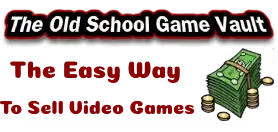When I got my Nintendo Game Boy Advance, one of the first games I tried was Golden Sun. This classic RPG was highly recommended by my younger brother.
Initially, I found the intro a bit slow and lost interest, which is common with me and playing RPGs.
It took me a long time to go back to the game. When I finally did, I was excited to dive into the Golden Suns adventure and enjoy its fun gameplay.
Key Points – Golden Sun GBA Review: A Solid GBA RPG That Rewards Patience
- Golden Sun blends elemental puzzles with turn-based combat and a collectible Djinn system for deep strategy.
- The story slowly ramps up but ultimately delivers a strong cliffhanger that ties into its sequel, The Lost Age.
- Its sprite-based graphics and dynamic spell animations push the limits of what the GBA could do visually.
- Not for everyone—grinding, puzzles, and pacing demand patience—but it’s a rewarding RPG for committed players.
However, I soon realized that the same problems that had deterred me in the past persisted throughout my 30+ hour playthrough.
👉 “Want to trade in your GBA RPGs like Golden Sun? Check out how easy it is to sell your GBA games for cash.”
In this Golden Sun review, I will take a deep dive into the game's narrative structure, discussing both the good and bad points---so be prepared for some spoilers. We will also look at the sequel, Golden Sun: The Lost Age, and how it links to the first game. This will help us understand its storytelling and character growth.
The Table of Contents
Golden Sun Review: A Solid GBA RPG That Rewards Patience
Golden Sun is a solid RPG but requires patience. The story ends with an annoying "To Be Continued" that leaves everything to be resolved in the sequel, Golden Sun: The Lost Age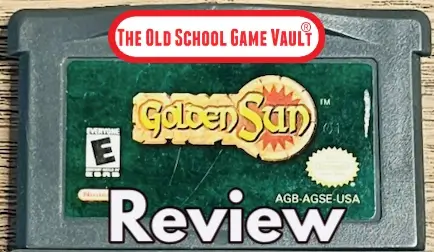 (2002).
(2002).
As a classic role-playing game, the Golden Sun game feels at home on the GBA alongside (updated SNES) titles like Final Fantasy IV Advance and Final Fantasy VI Advance, and especially Pokémon Ruby and Sapphire, known for their turn-based combat and character collection.
Like many popular RPGs, Golden Sun is an E-rated game. It features a group of brave young heroes who collect adorable little monsters, known as djinn, to help them in battles. This blend of adventure gaming and RPG mechanics makes it appealing to fans of fantasy RPGs.
If you’re into collecting creatures on the GBA, check out our guide on how to spot fake Pokémon games to protect your collection from counterfeits.
Golden Sun GBA Gameplay Overview: Combat, Djinn, and Exploration
RPG enthusiasts can easily dive into Golden Sun and will discover plenty of new elements in its combat system and djinn collection, reminiscent of Pokémon. This makes it a title worth exploring.
There are many random battles in the game, but they are spaced out well. This means that players who focus on the main story and occasionally explore won't need to spend hours grinding to move forward. Those who explore more or use a guide to find all the optional djinn will find it easier to complete the game.
I aimed to complete all the djinn in the game, which total 28. Most of the battles were not very hard for me. The only exceptions were the optional boss, Deadbeard, and the final boss. However, since I had collected all the djinn, I didn't need to replay these fights to win.
Djinn assignments work like a class system in the game. They change the spells, known as psynergy, that your characters can use. They also influence the characters' main stats and hit points (HP).
Honestly, I didn't try out many class combinations. I preferred to keep each character focused on their main elemental skill. This approach worked well for me, so I didn't feel a strong need to experiment. The combat challenges also didn't push me to change my strategy.
Golden Sun Game Djinn System: How Djinn Boost Stats & Summons
If you keep the djinn ready for battle, they will increase your stats, enhancing your character's abilities. However, if you use them, you will lose those bonuses. When you use djinn, you can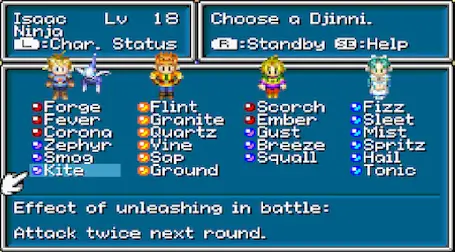 combine their power for a strong summon, adding depth to the gameplay.
combine their power for a strong summon, adding depth to the gameplay.
You can stack up to four djinn of the same elemental type. This makes your summons more powerful and improves the combat experience.
So fights for me were often about choosing between powerful characters and strategic summons. This made the combat enjoyable during longer battles. However, fighting regular enemies in dungeons was often tedious.
The mix of character customization and managing djinn offers a fresh take on classic RPG gameplay. This keeps players engaged with the strategy involved in this fantasy RPG.
Golden Sun GBA Gameplay Flaws: Late Revive Ability Frustrates Early Battles
One thing that frustrated me was the late introduction of the Revive ability. You can only use it after playing for about 10 hours in the game Golden Sun. If a character dies in an early dungeon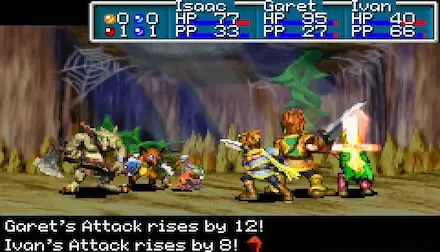 and you lack the Water of Life item, you have two choices.
and you lack the Water of Life item, you have two choices.
You can return to the dungeon entrance, revive the character in a town, and then start the dungeon again. Instead, you can attempt to continue without them.
This option is more interesting, but it also proves to be frustrating and impractical at this stage of the game. Without a complete party, having a character unable to fight is risky. This is especially true in tough dungeons that are filled with strong enemies. This aspect of the gameplay could deter players seeking a smoother RPG experience.
Golden Sun GBA Dungeon Puzzles: A Surprising Strength in the RPG Genre
The dungeon puzzles in Golden Sun GBA were a nice surprise. They added a unique element to the gameplay that is often missing in other dungeon crawling RPGs. The puzzles vary in type,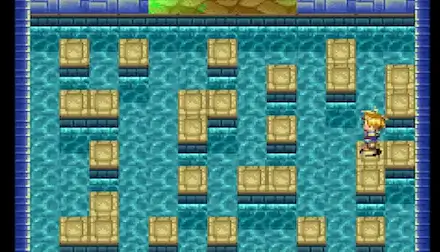 keeping them interesting and engaging throughout my playthrough. Adding puzzle-solving to the story improves the whole experience, something many RPG games often miss.
keeping them interesting and engaging throughout my playthrough. Adding puzzle-solving to the story improves the whole experience, something many RPG games often miss.
The game designers wisely decided not to include random battles on most puzzle screens. This option allows players to concentrate on solving problems without getting distracted by fighting. This makes the gaming experience better.
If I had to fight random battles every time I made a mistake on a puzzle, I would have wanted to throw my Game Boy Advance out the window. Fortunately, the puzzles provided a fun break from the action. I enjoyed solving the extra puzzles to reach exciting treasure chests that were visible but hard to access. As far as the integration of puzzles into RPGs goes, this game really excels in providing a balanced challenge.
Golden Sun Game Design: Traditional RPG Elements & Their Shortcomings
In the game, there's a world map and towns full of NPCs. Sometimes, you have a general idea of where to go in a game. Other times, the game doesn’t explain how to navigate well. This can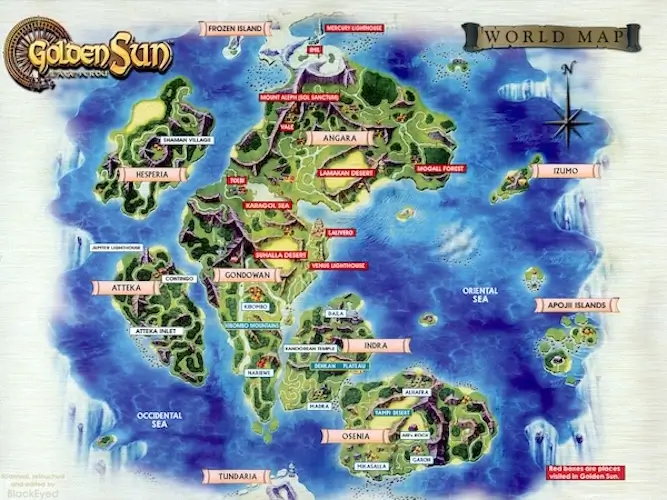 lead to wandering around or needing to look up a walkthrough for help.
lead to wandering around or needing to look up a walkthrough for help.
There is some back-and-forth in a few regions during the middle of the game. However, you mainly move into new and slightly different areas. The towns you visit tend to feel quite similar. Some desert areas have new environmental challenges. These challenges can be fun, but other open areas feel similar. Dungeons have a bit more variety, although some are not very unique.
Overall, Golden Sun introduces some innovative ideas to RPG gameplay. However, it has the common problem of needing players to fight random battles. This feature can be frustrating, much like in many other classic RPGs.
Later in the game, you can acquire items that help you avoid or trigger more random battles. However, this happens much later, and if you don't keep leveling up, the game will become more challenging. Due to this, I didn't find these items very useful.
Each character only has 15 inventory slots (including for their equipped items), which likely relates to memory limitations but is frustrating in practice, especially since the game saddles you with at least 2-3 items that you can neither use nor drop, which impacts gameplay.
(Shaman rod and Mars stone come to mind) that you can neither use nor drop, and that apparently just get traded off as plot points…in the sequel. Note to developers: DO NOT MAKE ME CARRY A BUNCH OF CRAP IN MY SMALL INVENTORY THAT I CAN’T USE SO IT CAN APPEAR IN A CUTSCENE IN YOUR NEXT GAME.
Golden Sun GBA Graphics and Sound: Visual Style vs. Audio Forgettability
The graphics in the game Golden Sun are great for the Game Boy Advance. They keep that classic retro look, which adds to the excitement of playing this game on a gameboy advance console. I appreciated how the game looked overall, though I wished the icons for cities on the world map weren't almost always the exact same one.
When I see the same city symbol in many places, it makes it hard to feel like I am experiencing different cultures. Each location has its own history and traditions. Character and enemy sprites were pretty good, and summon graphics were fun. However, the djinn sprites and battle graphics leave something to be desired.
This is where the comparison with Pokémon falls short. In Pokémon, each creature has its own traits and personality. In contrast, the djinn in Golden Sun are quite similar and do not have much individuality.
Each djinn of the same element looks the same on the menu. You don't see them often in battles, which makes it difficult to tell one earth djinn from another. This seems like a pretty obvious missed opportunity. It may be that the game had maxed out its capabilities elsewhere, which is likely why the developers took what was originally supposed to be one game and split it into two (more on this below).
Golden Sun Game Music Review: Does the GBA Soundtrack Hold Up?
In my opinion, the music in Golden Sun was pretty forgettable. When I took the game on public transit, I felt fine just turning down the volume instead of using headphones. I usually prefer headphones for games like Final Fantasy IV Advance and other RPGs.
The mixing seems fine for the GBA's capabilities, but I'm just not crazy about the music itself. It wasn't overly bothersome, and it adds to the epic feel of a fantasy RPG. Overall, the audio experience in Golden Sun is neutral or maybe even a small plus, but it certainly doesn't stand out among other games in the genre.
Golden Sun GBA Story Review: A Promising Tale with a Frustrating Cliffhanger
In the following review of Golden Sun, I will expand on this topic in greater detail.. At first, the childlike tone of the story didn't appeal to me as an adult playing Golden Sun for the first time.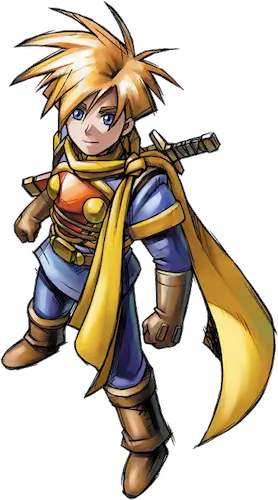 However, after a while, that started to feel charming, and I didn't mind it as much. Nonetheless, the story of Golden Sun is only half a story.
However, after a while, that started to feel charming, and I didn't mind it as much. Nonetheless, the story of Golden Sun is only half a story.
Maybe this was obvious to everyone purchasing it new in 2001. This isn't a major issue, but I believe Golden Sun does it poorly. It leaves behind the first game's story and characters, making players feel that their time and interest in them were wasted.
Not having played the second game yet, perhaps the first game's quest isn't as futile as it seems when the credits roll (and during the important post-credits scene that you should stick around for), but why leave players feeling like their quest was pointless and make them buy another game to see if that's true?
It seems that this is true. It looks like another main character needs to step up and do the right thing. The characters in the sequel might only have small parts in the main story. I've rarely felt so disappointed and cheated after finishing an RPG.
Most standard RPG story conventions are present, and they work fine. In Golden Sun, you can speak with characters called NPCs. You also have a special skill named Mind Read. This ability allows you to learn secrets that the NPCs do not want to reveal.
This feature improves the narrative in Golden Sun game significantly. The story itself, once you get past the between-games twist and into 'what's really happening' in the sequel, is fairly standard. They send you off on another, wrong quest throughout the first game, which is quite frustrating.
Reflecting on Golden Sun’s Narrative Structure: What Went Wrong?
Earlier, I mentioned the main storytelling mistake in the game. I also pointed out some aspects of Golden Sun that are done well. In this Golden Sun review, I want to take some time to look at what went wrong with the storytelling, particularly the narrative ending.
I also address some smaller issues in the plot. Lastly, I mention Mind Read, an interesting storytelling mechanic that stands out in Golden Sun's otherwise confusing narrative. This feature enhances character interactions and makes the story more interesting. It adds some good points, even though the overall story has its problems.
Golden Sun GBA Ending Review: Unresolved Storylines and Player Disappointment
I started to realize that Golden Sun couldn't possibly wrap up everything it had been setting up. This is indeed the case. The game begins by showing you that you need to interact with four elemental lighthouses. However, in Golden Sun, you only reach two of them.
The other two lighthouses, along with many other narrative elements hinted at in the first game, are found in Golden Sun: The Lost Age.
This sequel Golden Sun The Lost Age came out a year later in 2002. It completes a story that was too big for just one Game Boy Advance cartridge. This made some players frustrated because they wanted a full story in the first game.
This split in storytelling might leave fans of the RPG genre feeling unsatisfied with Golden Sun's conclusion.
Golden Sun Game Narrative: Why the Two-Part Structure Doesn’t Quite Work
Splitting an epic narrative between two titles can work effectively. Many games tell a cohesive story across two or three different entries, and typically do it well. However, Golden Sun does not achieve this, at least from the perspective of someone who has only played the first game (so far).
Players should be able to judge a game based on its standalone narrative. If you buy a significant RPG and invest many hours into it, the story should wrap up nicely. It should provide some closure, even if it hints that there is more to discover in a sequel.
Recent games like The Legend of Zelda: Breath of the Wild, Horizon Zero Dawn, as well as the popular God of War series, tell interesting stories. Each of their first games offers satisfying endings. Games like Fire Emblem GBA, Advance Wars GBA, and Summon Knight: Swordcraft Story each have sequels on the GBA. These sequels can be played and enjoyed on their own. Unfortunately, there is very, VERY little closure at the end of the first Golden Sun GBA title.
Your party doesn't achieve its main objective. The experience lacks clear benefits, and the main characters do not learn anything important or grow as people. Nothing really changes.
The game ends with your team moving on without you. They are only halfway through their quests and have not achieved much. There are many mysteries and questions about NPCs that remain unanswered. This can leave players feeling unsatisfied with the storytelling, as I mentioned earlier.
Golden Sun: The Lost Age – A Sequel That Changes Everything
From what I've read, the second game in the Golden Sun series switches things up in frustrating ways. In the sequel, Golden Sun: The Lost Age, you don't continue with your original protagonist and party (though they do appear eventually), but rather play as one of the first game's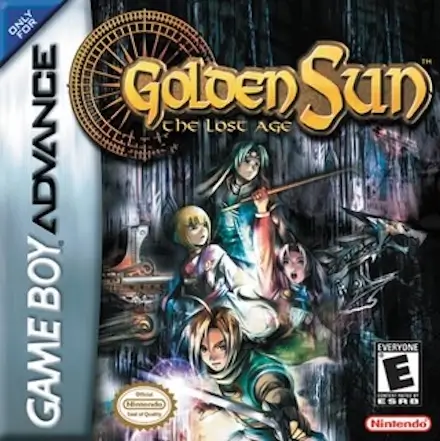 antagonists.
antagonists.
This shift could have been intriguing, but it ultimately feels like it undermines all the effort your team put into the first game. As it turns out, your original party was trying to prevent the bad guys from achieving a noble goal. This decision makes it feel like the journey you took in Golden Sun was pointless.
How Golden Sun’s Sequel Continues (and Undermines) the First Game’s Quest
In Golden Sun: The Lost Age, your job is actually to continue the mission you were trying to stop in the first game. This concept could make for a fascinating storyline, but the way it's split between the two games undermines the strengths of the narrative.
After investing over 30 hours into the Golden Sun GBA, discovering at the end or in the sequel that I've been making the wrong choices can be disheartening. Then, I am forced to switch to another character who is pursuing the 'correct' path.
If you want Isaac and his team to see that things are more complex than they believed, you can change their minds and send them on a new adventure. That could be really exciting. However, if you make Isaac and his team struggle for thirty hours only to leave them when they fail, it can feel frustrating and even like a betrayal.
This sentiment is especially strong when you come to care about the characters throughout your journey in the Golden Sun game. While their development might be somewhat limited, players still invest time and emotion into their stories. After spending many hours trying to work with them, it can be frustrating and disappointing to find out that your efforts were for nothing.
This surprise reveal, which is awkwardly placed between the two entries in the Golden Sun GBA series, serves as the biggest story moment. However, I believe it misses the mark, leaving players feeling unfulfilled by the overall narrative.
Golden Sun Game Dialogue Choices: A Missed Opportunity for Meaningful Choice
Golden Sun has one other, lesser frustrating story element, which is the yes/no choices that pop up in dialogue. In conversations, people often ask Isaac, the player character from the Golden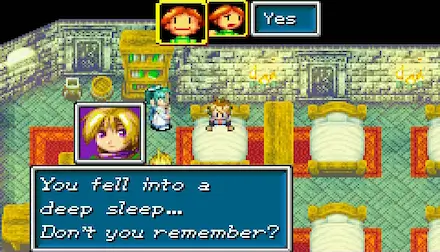 Sun game, about his thoughts on a plan, an ethical issue, a choice, or something similar.
Sun game, about his thoughts on a plan, an ethical issue, a choice, or something similar.
You can say yes or no. But don't worry! Your choices are completely meaningless and affect nothing.
In fact, these choices don't create a lasting character for Isaac. After one response in the dialogue box, the conversation continues as if nothing happened. Even these responses can diminish the feeling of choice. People often say, "You didn't really mean that," if you pick the wrong choice.
This comes up often when you're asked, "Do you remember X?" If Isaac's supposed to remember, they'll remind him or think he's joking. Other times you're asked, "Is Y the truth?"
You often know the answer already, so there is a correct response. However, the dialogues are usually not very interesting, making these exchanges feel like a waste of time. I am not sure what the developers intended with this mechanic. It feels like it offers choices that are not truly meaningful in the context of the Golden Sun game.
Golden Sun GBA’s Mind Read Ability: A Clever Storytelling Mechanic
With one clever innovation, however, known as Mind Read, you gain the ability to read minds maybe 6-8 hours in. You can do this with any NPC you encounter in the Golden Sun game. If you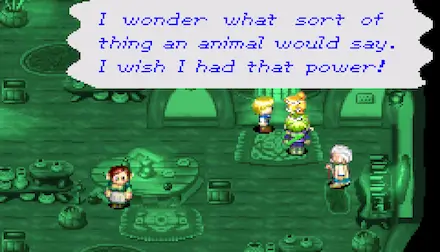 read a random innkeeper's mind, it's probably just extra depiction, but every once in a while, you'll stumble across a villager with a secret (usually hinted at in some way) that leads you toward a treasure.
read a random innkeeper's mind, it's probably just extra depiction, but every once in a while, you'll stumble across a villager with a secret (usually hinted at in some way) that leads you toward a treasure.
This Mind Read mechanic is enjoyable because it helps you learn more about the towns and their people in the Golden Sun. It also offers some side quests. Using Mind Read on important characters allows you to gain deeper insights into their motivations and backstories.
There's one section where you decide to suspend your main quest to go save a king. Even though his queen tells you she and the guard can handle it and that you don't have time (I think you have to do this, even though supposedly it's a digression), when you come back with him, the queen scolds you for stopping your mission to rescue her husband.
However, if you read the king's and queen's minds (or talk to a couple of the villagers), you realize she's being hard on you because it's what a responsible ruler should do—but the greater good comes first. Yet, personally, she is incredibly grateful that you saved her husband. This was my favorite use of Mind Read, but there are other variations on this that were also cool.
Golden Sun Review Final Verdict: Is This GBA Classic Still Worth Playing?
We rate Golden Sun a creative but narratively frustrating 8.4/10 — a thoughtful ★★★★☆ on our retro RPG scale.
Golden Sun is a game I can't recommend to everyone. This game has many good features. The puzzles are fun, and the Mind Read storytelling method gives the experience a unique feel. The combat system in Golden Sun for the GBA is creative and well-made. It keeps battles interesting for players.
The young main characters are charming, even if they lack depth. However, the unsettled ending may be a dealbreaker for gamers who value a strong narrative in RPGs. In this review of Golden Sun, I recommend the game to players who want to explore the RPG genre. It has a mix of good and bad features that make it stand out.
Casual RPG players might want to look elsewhere unless they are certain they want to invest in both Golden Sun GBA titles. It's important to note that the characters and storyline from the first game are mostly left behind in the sequel.
If you want a more complete experience, you might want to play the sequel, Golden Sun: The Lost Age, instead of starting with the first game. On the other hand, this Golden Sun game could serve as a good introduction to the RPG genre for kids. However, they might find the awkward ending frustrating.
What do you think?
Am I being too harsh on Golden Sun’s storytelling failures? Did the abrupt shift between the games resonate with you? Did you find that the first game provided any sense of closure that I may have overlooked? And for those who experienced it as a child, did the story feel more enjoyable to you?
Frequently Asked Questions
How long does it take to play Golden Sun?
- Playing through Golden Sun typically takes over 30 hours. While the journey is engaging, many players find the ending underwhelming — especially given the investment of time.
Is Golden Sun a good game?
- Golden Sun has its strengths, including clever puzzles, solid combat mechanics, and rich visuals for a GBA title.
- However, unless you're a dedicated fan of the series, it's not a game most players revisit.
- If you’ve played it before and enjoyed the experience, you might consider trying the sequel or the third entry on the Nintendo DS.
About Us - Sell Your GBA Games for Cash at Old School Game Vault
If you're looking to part ways with your old games, including your Game Boy Advance titles, look no further than Old School Game Vault! You can sell GBA games easily and get cash payments for your collection. Want to know how much your Game Boy Advance games are worth today? Read our 2025 GBA Price Guide
We offer a convenient service that includes free shipping, making it simple to send in your games and receive payment quickly.

